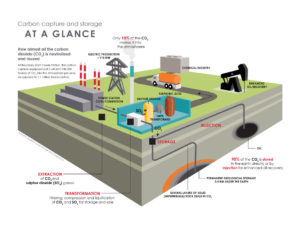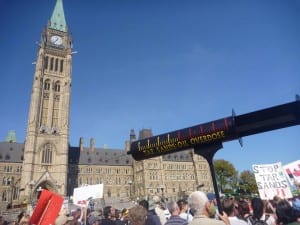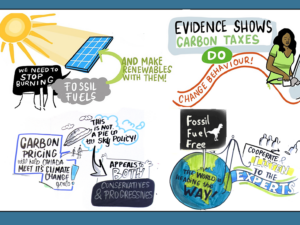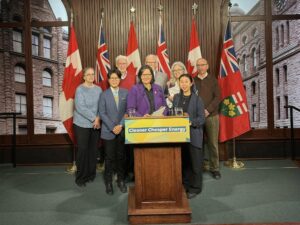
To the UN High-Level Expert Group on Net Zero, We are in a climate emergency and right now Pakistan, a country that did little to contribute to the problem, is experiencing the devastating impacts of our collective hubris. Fossil fuels are the major source of greenhouse gas pollution. In May 2021, the International Energy Association (IEA) released its first-ever modeling of a 1.5C pathway. The IEA is calling for no new investment or approvals of fossil fuel supply projects, starting now. The best chance of keeping of achieving net-zero emissions by 2050 and keeping 1.5 °C alive is a phaseout of fossil fuels that is fair and widely agreed upon. That is why Citizens’ Climate Lobby Canada supports the Fossil Fuel Non-Proliferation Treaty. https://fossilfueltreaty.org/ The Fossil Fuel Non-Proliferation Treaty will advance action under three pillars: The key pathway to phasing out fossil fuels will be to follow the money. Just prior to the G7, the Sustainable Markets Initiative—a collection of more than 400 CEOs from every sector and chaired by His Royal Highness the Prince of Wales—put forth a three-pronged path to accelerate the transition to a sustainable future that includes carbon pricing, optimization of the impact of public funds, and government mandates that offer the private sector clarity and stability. Here are our recommendations that would offer the clarity and stability the Sustainable Markets Initiative is calling for: It should be noted that all the major civil society groups that engaged within the G7 — including the B7 (business), C7 (civil society), S7 (science), T7 (think tank), W7 (women), and Y7 (youth) — had carbon pricing or redirecting financial flows in their key climate demands. The Fossil Fuel Non-Proliferation Treaty and redirecting financial flows with gender justice and human rights as guardrails could achieve the SDGs, and the IPCC’s 2030 GHG reductions of 50 percent below 2005 concomitantly.
https://www.iea.org/reports/net-zero-by-2050
An immediate end to the expansion into new reserves of coal, oil, and natural gas would limit the globe’s production of carbon emissions (which, if left alone, would create more than twice the limit set by the United Nations and other organizations).
Since existing oil and gas fields and coal mines contain enough carbon on their own, phasing out those current stockpiles is a much-needed step to keep the world under the Paris Agreement’s temperature limits.
Every worker, community, and country must be taken into the deepest consideration on the way to fast-tracking all solutions. Only a proactive plan to enable economic diversification, implement renewable energy and other reliable, cost-effective low-carbon solutions will be able to meet the needs of a sustainable future.
Public money cannot finance the low-carbon transition by itself. Governments must use policy instruments to mobilize private sector financing. And at the same time, we also have to strive for the Sustainable Development Goals (SDGs).
https://www.sustainable-markets.org/
At Citizens’ Climate Lobby Canada, we have been advocating for a carbon fee and dividend (climate income) policy since 2010. This is the carbon pricing backstop policy for Canada. A November 2021 article in Nature found that it will be possible to reach a 2C target while also increasing wellbeing, reducing inequality, and alleviating poverty globally if countries enacted a carbon fee with an equal per capita dividend policy. Thus, with a few more policies in play in addition to carbon fees with dividends, the 1.5C goal could be reached while reducing inequality at the same time. National carbon pricing policies must include carbon border adjustment mechanisms that take into consideration common but differentiated responsibilities to the climate emergency to spur the global adoption of carbon pricing in a socially-just manner. https://www.nature.com/articles/s41558-021-01228-x
At COP 26, 130 trillion dollars was committed by the financial institutions. This is more than enough to transition the economy. After COP 26, Hiro Mizuno, Special Envoy of U.N Secretary-General on Innovative Finance and Sustainable Investments in a discussion with Christiana Figueres was clear that rules are needed to unleash this finance for net-zero and 1.5C aspirations.
https://podcasts.apple.com/ca/podcast/outrage-optimism/id1459416461
Governments of the world can look to Canadian Senator Rosa Galvez’s Bill S-243, the Climate-Aligned Finance Act. It would guide Canada’s financial sector through an orderly transition to a low-carbon economy in order to meet our climate targets while safeguarding the financial system from the systemic risks posed by climate change.
https://www.parl.ca/legisinfo/en/bill/44-1/s-243
In February 2022, The B Team and Business for Nature launched a joint brief called “Financing Our Survival: Building a Nature-Positive Economy through Subsidy Reform”. It summarizes the key messages from a study by subsidy experts and aims to inform government and business decision-making on Environmentally Harmful Subsidy (EHS) reform. The conclusion were that governments of the world need to reform $1.8 trillion yearly environmentally harmful subsidies to deliver a nature-positive economy. https://www.businessfornature.org/news/subsidy-reform
https://citizensclimate.earth/2022/06/22/laser-talk-powerful-carbon-pricing-demands-to-the-g7-and-g20-from-civil-society-groups/











